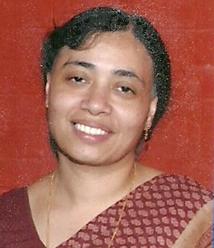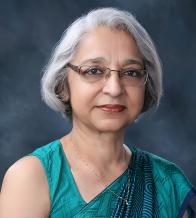|
|
Greetings
and Welcome
to the October issue of news.desk
As
we inch towards the festival of
lights, there sure is a wave of
joy all across. School children
prepare for their holidays,
sharing their vacation plans with
friends. Parents are busy
negotiating leave from
professional responsibilities
and juggle with admissions at
extracurricular activities for
their kids. Looking at all the
planning and action, I wonder if
there is time for the proverbial
'time to stand and stare' or is
it all about back-to back
compacted plans full of items
added- some from our wish list
and some on account of peer
pressure. I feel we need to slow
down and spend time with our
loved ones and not just plan
itinerary in the name of quality
time.
Most K12 institutions having
welcomed the RTE act are now
seeking clarifications on
implementation causing some
delay in the admissions. Hopefully we will together solve the
issues surrounding the
operational challenges of this
great initiative creating a way
for a brighter tomorrow for our
students-the underprivileged to
gain by access to education and
the fortunate ones learning to
live in real life ecosystems
accepting aspects of society
they might be ignorant of today.
Let's go out and Develop
Schools.
In
this edition:
-
We
welcome our Guest editor,
Mrs. Sophy Jacob, Headmistress
- St Thomas School Karol
Bagh, New Delhi, who writes on
"Teaching Students
Values"
-
Our
Chief Editor, Rita
Wilson with her views on
"What do Test
Scores really Say About a
School"
-
I
share my views on "After
school activities"
-
Web
links on
the happenings in the
education industry
-
You
could know more about
services offered by
Develop Schools, the
itinerary of our
associates for you to
benefit from during their
visit to your locations
Send
us your articles. If your
entry is selected we will
cover your article in our
forthcoming newsletters.
I
now invite you to read on and
send us your feedback / suggestions.
After all we improve when you
assist us. Feel free to FORWARD
this newsletter to your
Trustees / Managing committees
/ References.
Sincerely,
Melwin
Braggs
Business
Editor
|
|
Teaching
Students Values?
|
Our
Guest Editor,
Mrs. Sophy Jacob,
Headmistress
- St Thomas School Karol Bagh,
New Delhi
 The
world is seeing rapid advances
in technical and educational
fields. Values of individual
liberty and achievement are
making the youth ride high on
the wave of aspiration. Are they
equipped to take the world they
inherit? - a complex world
characterized by change and
crisis. The
world is seeing rapid advances
in technical and educational
fields. Values of individual
liberty and achievement are
making the youth ride high on
the wave of aspiration. Are they
equipped to take the world they
inherit? - a complex world
characterized by change and
crisis.
Most
of us would agree that the youth
of today, though able to adapt
to life in a flawed society, do
not have the resources to meet
the challenges or deal with
decisions and pressures
according to the values and
principles which have stood the
test of time. We are caught up
in a system of education where
managerial techniques and
innovative ideas have redefined
humanity. The priorities of
community and relationship are
easily surrendered to the
aggressive corporate agenda of
economy and efficiency. We have
more techniques and strategies
than ever before at our
disposal. We are wealthier and
healthier, but happiness seems
to have retreated to a far
horizon. There is an overall
depreciation in the value system
and the quality of life. At the
root is a moral decline which
has failed to keep pace with
scientific and technological
advances. Acknowledging this is
the starting point of a
different path; a path that
restores the priorities of life.
Let
us demonstrate and teach our
children to confront the
destructive modern patterns of
materialism and self
centeredness, and orient them
towards a choice of such values
as are conducive to the
experience of joy, which will
help them cope with realities
and upsets of life
constructively.
Our
children are the living message
we send to a time we will not
see. - Neil Postman. They are
carrying with them into an
unknown future whatever we
consider to be of value.
|
|
After
school activities
|
|
Melwin
Braggs, Business
Editor
Kids
don't stop learning when they go
home from school. The after-school
activities for kids are designed on
these lines to be entertaining,
educational ways to engage kids and
keep their curious minds working
when they're not in the classroom.
After
school programmes give children the
opportunity for social interaction,
career exploration and community
work.
Extracurricular activities can
explore the fields of science, art,
home economics, athletics and
literature. Students can prepare for
careers in media, technology and
other important employment. These programmes also give students the
confidence that they need to pursue
and succeed in their careers.
After-school
programmes can be a blessing for
families who want to extend their
children's learning or cultural
experiences. They're also wonderful
for working parents who need
somewhere for their children to go
after school ends, but who are
looking for more than a babysitter.
There are so many programmes available
to families today that choosing the
right one can be a challenge. Here
are the benefits of some
after-school activities. But care
needs to be taken, not to overdo it,
keep it simple-kids need downtime,
too.
Sports
Programmes: Cricket, football and
basketball-all of these, as well as
some other choices-are considered
competitive sports. There are many
benefits of putting children into a
sports centered sports program. They
learn good sportsmanship, how to be
a team player, discipline and they
get plenty of exercise. Martial
arts, while not technically competitive like football, are
excellent choices when it comes to
discipline, self-control and a
physical outlet.
Dance
Programmes: From Classical, folk
to bollywood, dance classes are a
favourite for girls especially,
although don't think your son won't
like them. Dance is fun and provides
plenty of exercise. Choose hip hop,
zumba, hula, ballroom dancing and
more. These classes help children
with grace, balance and large motor
skills. They also provide
opportunity for social skills as
group performances are usually part of the
program.
Educational
Programmes: If your child would
rather read than play football or
spends hours over a chemistry set,
you might want to consider an
educational programme. Children can
join reading clubs, math or science
clubs, or take history or language
classes. Educational programmes can
help improve grades. If your child
needs improvement in a particular
subject, such as maths, choose a
programme that emphasizes that
subject.
Arts
& Cultural Programmes: Many
after-school programmes offer music
lessons, theatre and drama, chess
clubs, painting or even arts and
crafts. programmes like these allow
children to explore different areas
of the art world before deciding on
something long-term. The emphasis
behind an after-school programme of
this kind is enrichment, encouraging
creativity and exploring areas not
normally open to kids. For example,
if your child is shy, drama may draw
him out. Music classes bring out
hidden talents in a child and teach
discipline.
Keep
Your Goals in Mind
Remember
whatever programme you pick to offer,
regular evaluation is the key to
success. Make sure the programem works
for the child. He should have the
freedom to reject an activity if he
genuinely dislikes the activity.
Generally, programmes that combine the
educational with the recreational
are best suited especially for
younger children. The goal is
learning and enrichment, but having
fun is important, too.
|
|
What
do Test Scores really Say About a
School
|
|
Rita
Wilson, Chief Editor
(Ex-chief
executive and Secretary, ICSE)
If
you’ve recently moved you probably
researched local schools first.
These days, access to test scores is
only a click of the mouse away –
but critics argue that this
information tells us more about the
socio-economic status (SES) of the
student body than about the quality
of the schools themselves. How much
do we really value diversity? And
how much can you learn about a
school based on its test scores?

That
high socio-economic status is
correlated with academic success is
unpalatable, but undeniable.
Economist Steven Levitt described
some of the factors most highly
correlated with high test scores in
his book Freakonomics: highly
educated parents and high
socio-economic status mattered more
than intact families, daily reading
sessions, and an at-home mother.
“The
research on this issue says that the
variable that counts for supporting
high academic achievement is high
expectations,” says Carol Pate,
of Chestnut Hill College. “Parents
who are in the high SES realm expect
that their children will achieve at
the level to continue the lifestyle,
whether it means in a professional
manner, economic or a combination of
both. In addition, children of high
SES parents are also more likely to
inherit good genes resulting from
supportive nutritional, medical and
overall environmental care. Finally,
children of high SES parents…are
able to concentrate on their
schooling…because they do not need
to be concerned about the
necessities of life, such as
nutritional foods, safety in the
community and finding adults to care
for them.”
Schools
may have excellent facilities,
involved teachers, and high
per-pupil spending, but still score
lower than a school with a wealthier
student body and high scores. “It
is critical that parents don’t
stop at the question, ‘which is
the best school?’ and instead move
toward ‘which is the best school
for my child?’
If
test scores aren’t enough, parents
should consider some of the
following -
•teachers
that provide significantly more
frequent feedback to parents than a
typical report card
•schools
that invite parents to be part of
the school community in meaningful
ways
•schools
that involve students in service
learning and community-building
activities
•schools
that include an intensive focus on
student data from multiple sources
•teachers
that compare students to themselves
rather than to other student groups
In
an age of high anxiety, it can be
frightening for parents to choose a
school that doesn’t have the
highest test scores. For parents who
value socio-economic diversity,
though, these schools may provide a
different type of education – one
in which students are exposed to the
kind of diverse population they’ll
encounter in the real world.
|
|
|
|
|
|
|
|
|